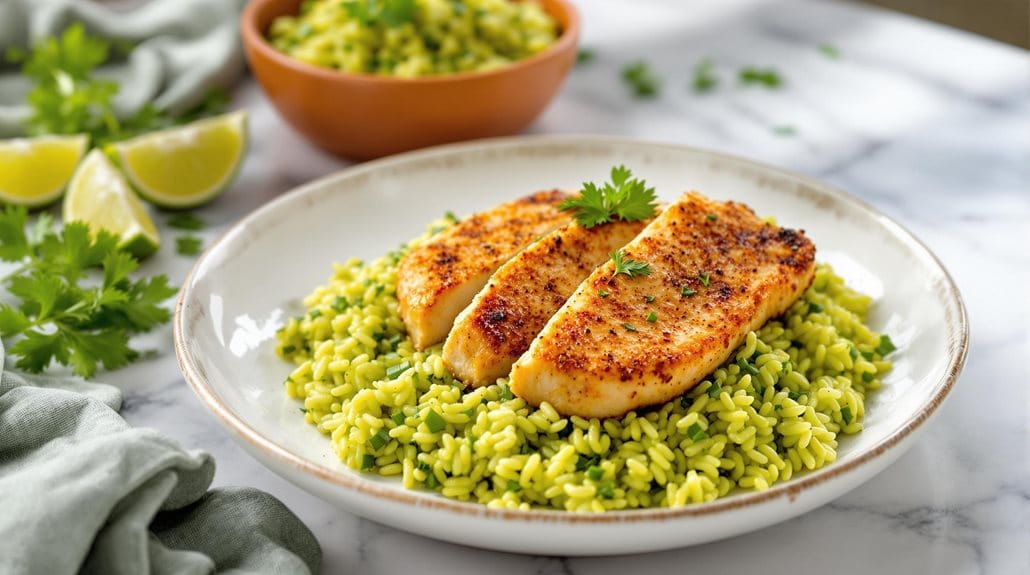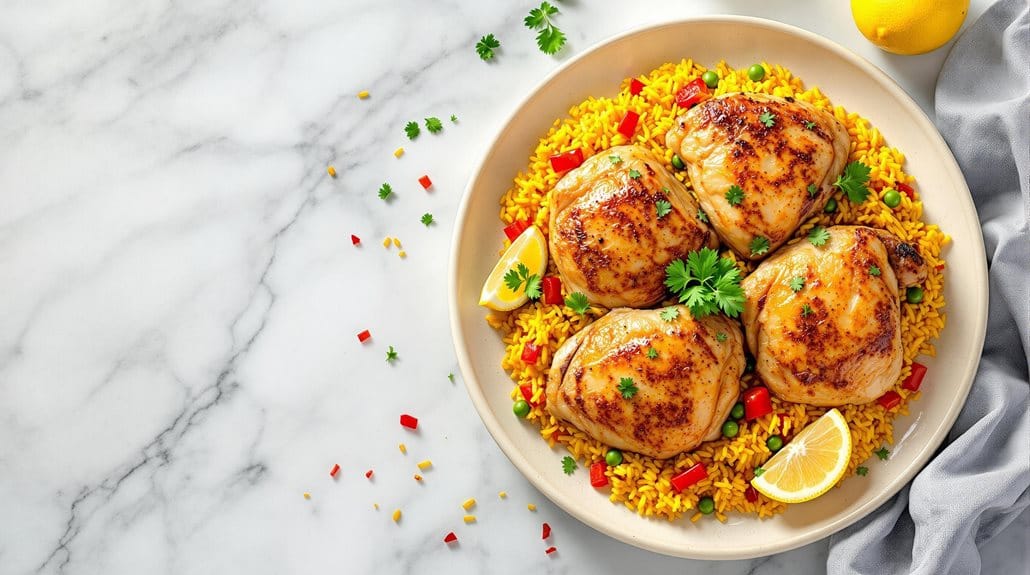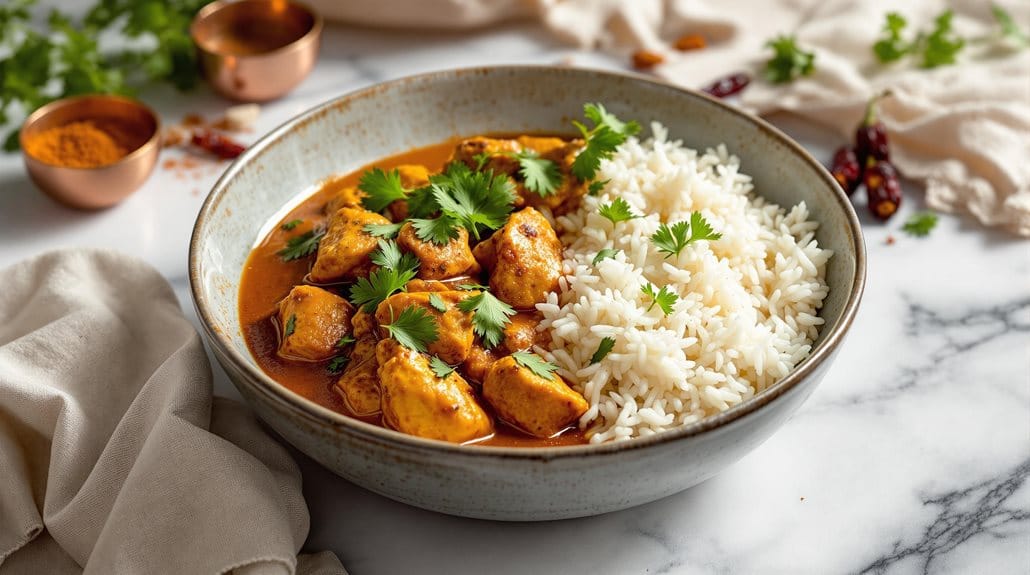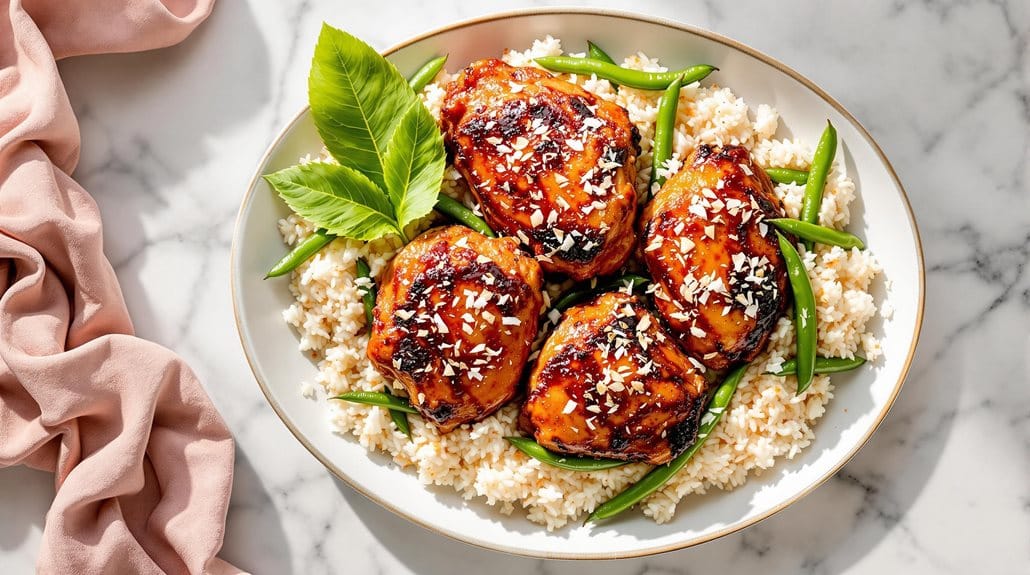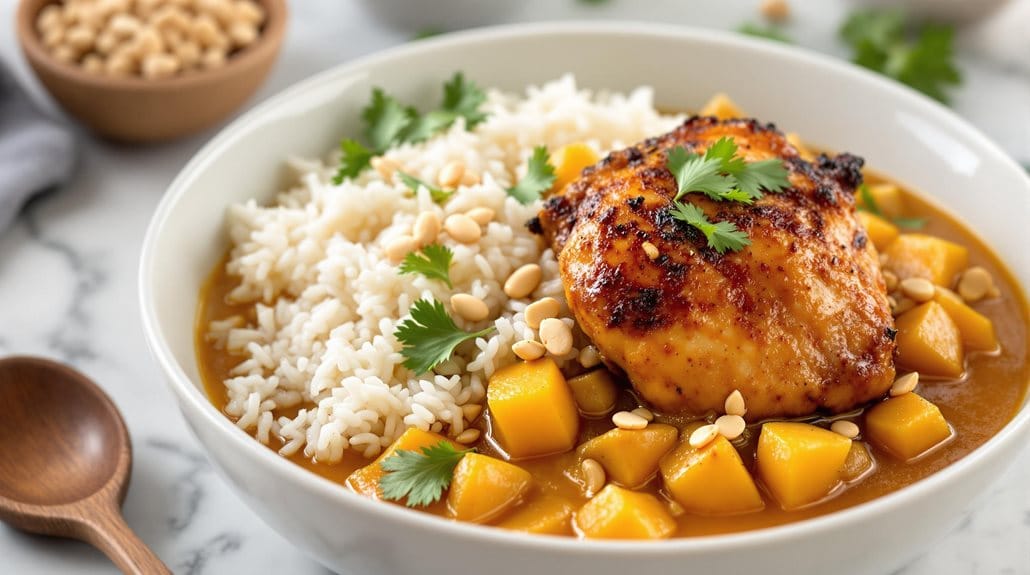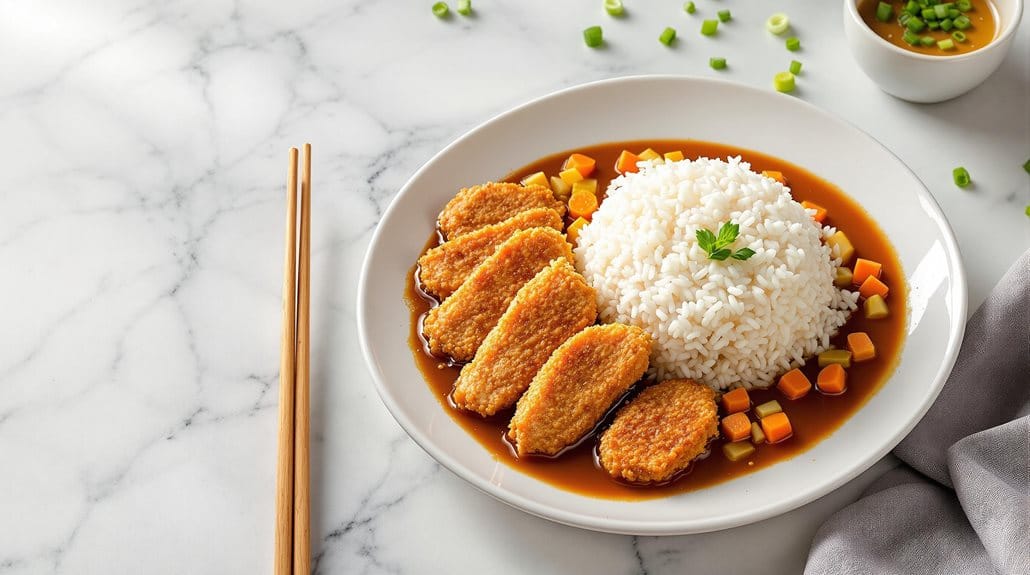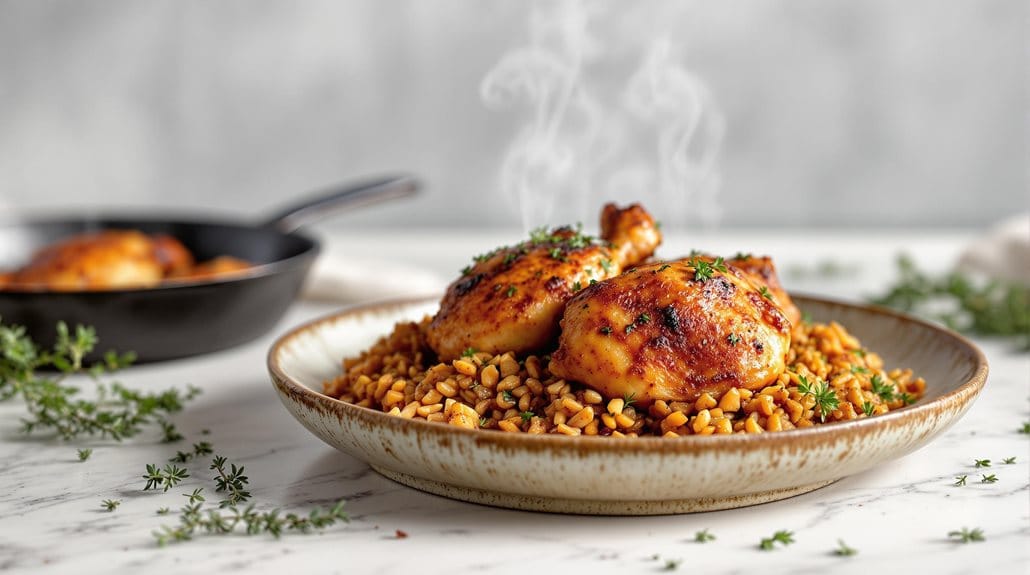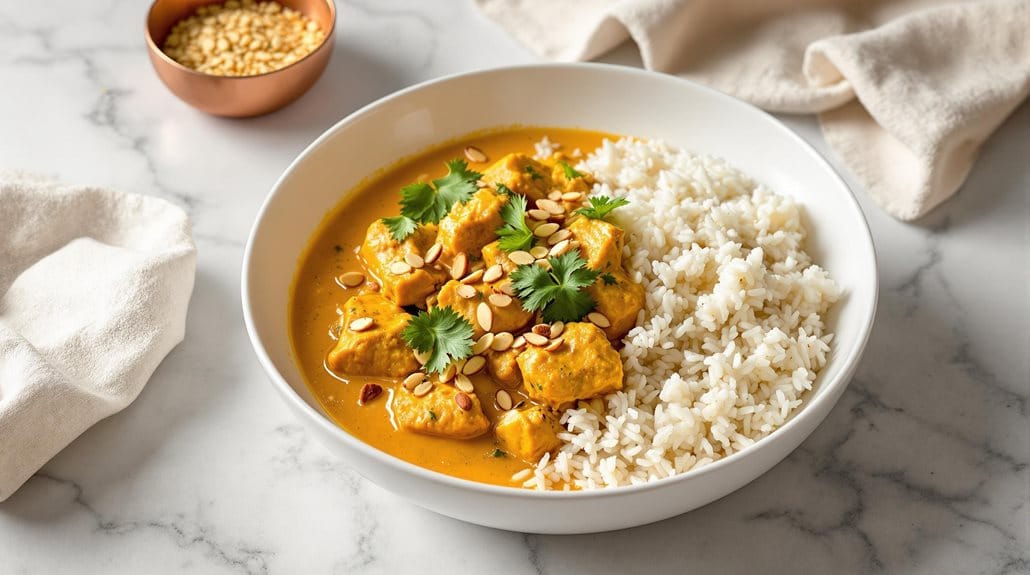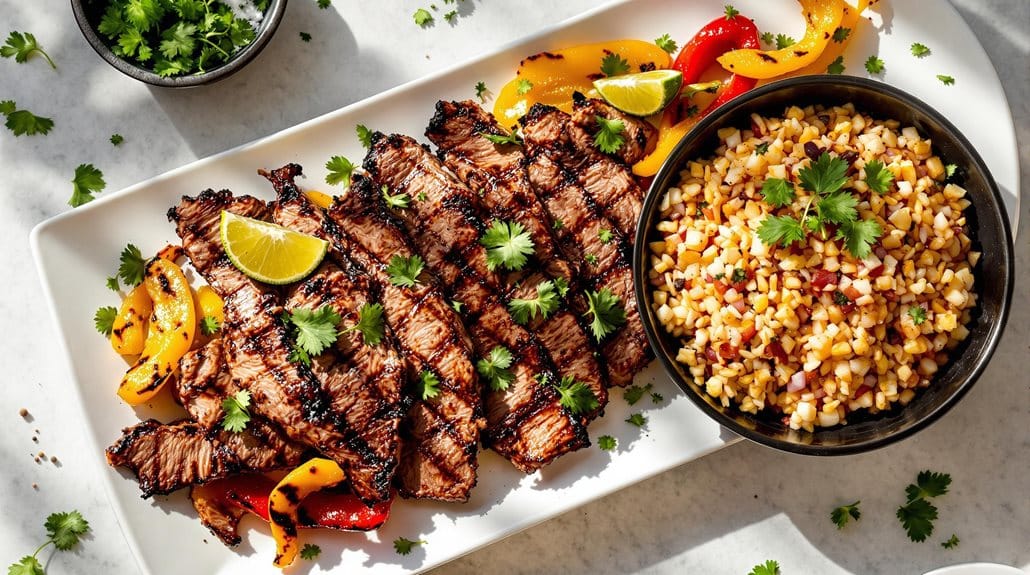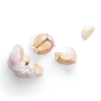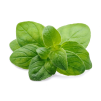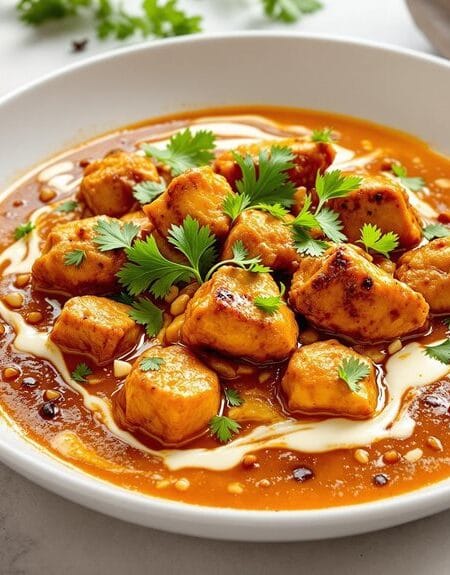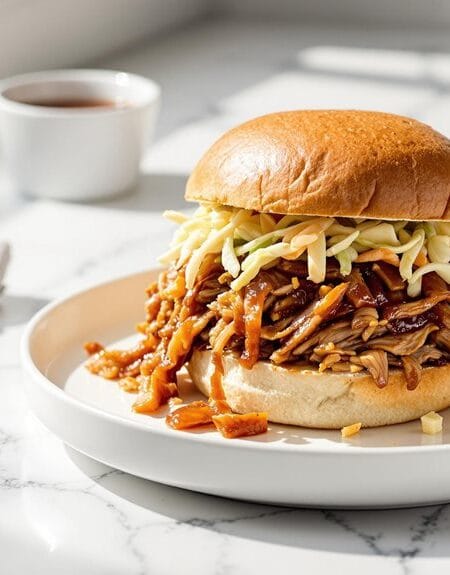| This Mediterranean-inspired chicken dinner combines zesty lemon-herb flavours with perfectly cooked orzo all in one convenient Ninja Speedi appliance. Perfect for busy weeknights when you want a restaurant-quality meal without multiple pots and pans, this dish delivers tender chicken and perfectly seasoned pasta in under 30 minutes. For the most flavoursome results, let the chicken marinate in the herb mixture for at least 15 minutes before cooking. |

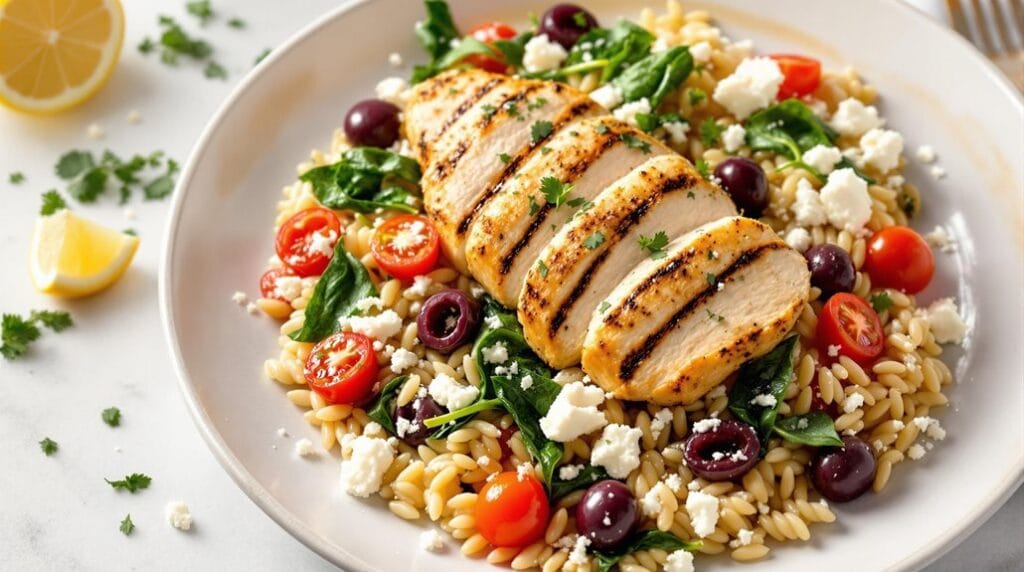
Lemon-Herb Grilled Chicken with Mediterranean Orzo in Ninja Speedi
Description
This vibrant dish combines succulent grilled chicken with a fresh Mediterranean-inspired orzo pasta, creating a complete meal that's both nutritious and full of flavour.
The Ninja Speedi's dual-cooking capability allows the orzo to simmer while the chicken cooks to perfection above.
The lemon and herb marinade infuses the chicken with bright citrus notes and aromatic herbs, while the orzo absorbs the flavours of garlic, tomatoes, and Mediterranean vegetables for a harmonious blend of tastes.
Ingredients
Instructions
Combine 2 tablespoons olive oil, lemon juice, half the zest, garlic, oregano, and thyme. Marinate chicken for 15 minutes.
Bottom Pot:
Add remaining olive oil, orzo, stock, tomatoes, and season with salt and pepper.
Place pot in unit.
Crisping Tray:
Place marinated chicken breasts on crisping tray.
Position tray above orzo mixture.
Cooking:
Select Speedi Meals function, set temperature to 190°C for 15 minutes.
When 5 minutes remain, add spinach to orzo mixture and stir.
Once complete, remove chicken and let rest for 5 minutes.
Stir feta cheese and olives into orzo.
Slice chicken and serve over orzo, garnishing with remaining lemon zest.
Nutrition Facts
Servings 4
- Amount Per Serving
- Calories 884.53kcal
- % Daily Value *
- Total Fat 28.1g44%
- Saturated Fat 7.5g38%
- Trans Fat 0.01g
- Cholesterol 226.51mg76%
- Sodium 1651.44mg69%
- Potassium 1656.17mg48%
- Total Carbohydrate 74.12g25%
- Dietary Fiber 5.8g24%
- Sugars 7.54g
- Protein 81.5g163%
- Vitamin A 200.32 IU
- Vitamin C 37.91 mg
- Calcium 236.44 mg
- Iron 5.08 mg
- Vitamin D 0.1 IU
- Vitamin E 4.36 IU
- Vitamin K 138.55 mcg
- Thiamin 0.49 mg
- Riboflavin 0.97 mg
- Niacin 31.23 mg
- Vitamin B6 2.7 mg
- Folate 117.83 mcg
- Vitamin B12 0.99 mcg
- Phosphorus 897.03 mg
- Magnesium 163.55 mg
- Zinc 4.24 mg
* Percent Daily Values are based on a 2,000 calorie diet. Your daily value may be higher or lower depending on your calorie needs.
Note
Tips: For best results, ensure chicken breasts are of even thickness by gently pounding them before marinating.
If orzo appears dry during cooking, add an extra 60ml of hot stock.
The dish can be made spicier by adding red pepper flakes to the marinade.
Leftover portions will keep well in the refrigerator for up to 3 days.


